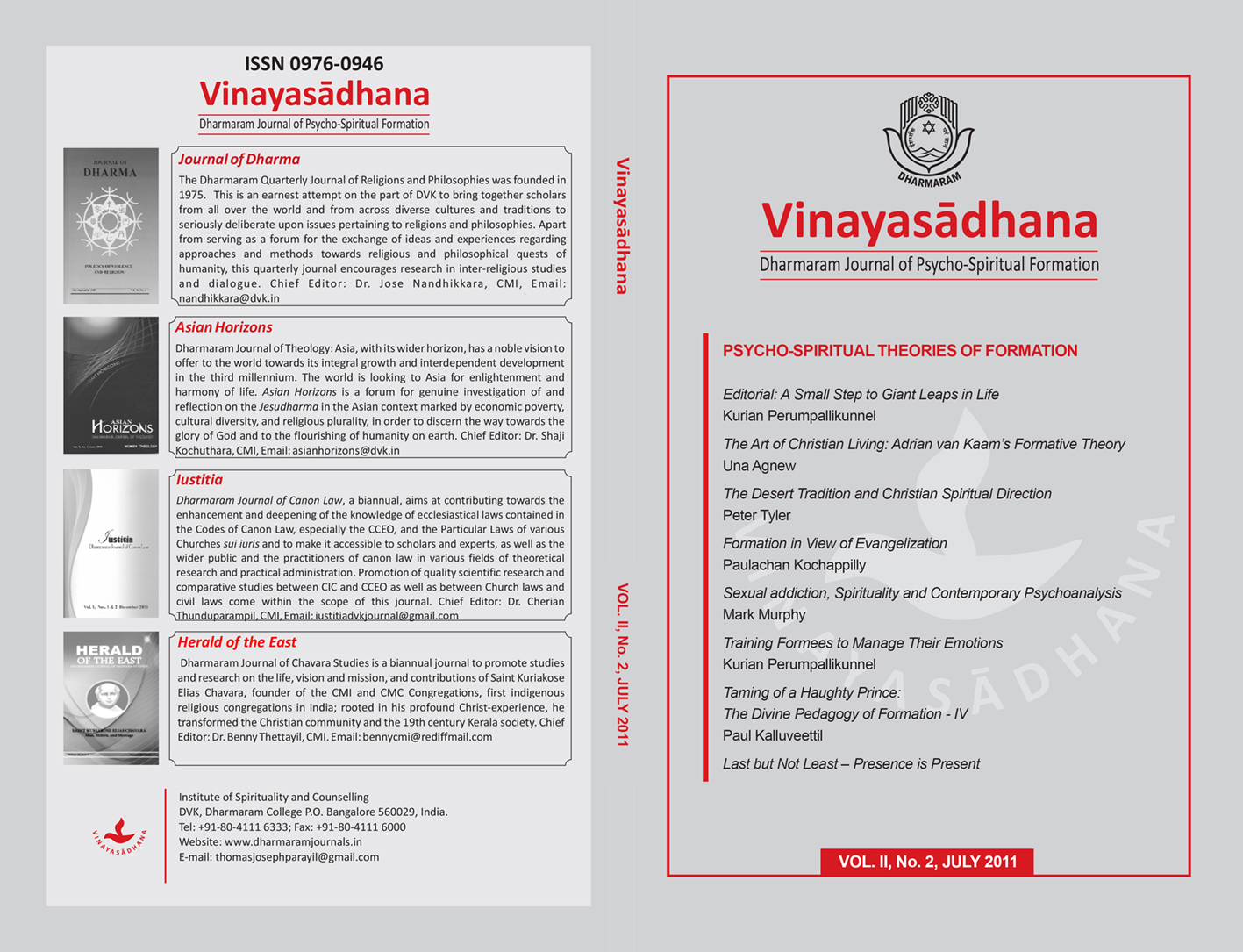SEXUAL ADDICTION, SPIRITUALITY AND CONTEMPORARY PSYCHOANALYSIS
A Reflection on the Contemporary Pastoral Significance of Spirituality and Psychoanalysis
Keywords:
SEXUAL ADDICTION, SPIRITUALITY, CONTEMPORARY PSYCHOANALYSISAbstract
There has long been a tension between psychology and spirituality and the dividing line between them is often hard to pin down. This work is a pastoral reflection and exploration on the relationship between spirituality, sexual addiction and Lacanian Psychoanalysis. Taking as a space of exploration the problem of sexual addiction as being the ‘pineal gland’ of these two discourses, this paper explores an underused hermeneutical device to aid such an exploration, and that is desire. Desire is integral to both spirituality and Psychoanalysis and in relating desire directly to the problem of sexual addiction an alternative perspective opens up, a perspective that takes directly into account the source of addiction, the human subject. The ramification of such a theoretical exploration is that one begins to understand desire not as something that needs to be stymied or relegated in order for us to thwart addiction in its different forms; rather one understands the possibility that desire needs to be developed and strengthened. Addiction has long been suggested by various discourses to be a disease that stems from rampant erotic inclinations. Contrary to this perspective I argue that sexual addiction stems from a fear of desire, a primary desire that one cannot comprehend. This paper explains that this incomprehension is the same incomprehension we have toward the gift of grace and the sexual addict is not a person trying desperately to get at “more” but in their activity is trying to get rid of “too much” (Loose 2003:222), an overabundance that cannot be grasped in a world ruled by lack, scarcity and deprivation.
References
Aldridge, S. 2005. Use Your Brain to Beat Addiction: The Complete Guide to Understanding and Tackling Addiction. England: London.
Brouwer, M and M. Laaser. 2008. “Sexual addiction and internet pornography”, In: Geary, B and J. Bryan (eds.) 2008. The Christian Handbook of Abuse Addiction and Difficult Behaviour. Suffolk: Kevin Mayhew Ltd. p156-160.
Brown, P. 1988. The Body and Society. New York: Columbia University Press.
Chiesa, L. 2007. Subjectivity and Otherness. Massachusetts: The MIT Press.
Eagleton, T. 2009. Reason, Faith, and Revolution: Reflections on the God Debate. London: Yale Books.
Eagleton, T. 2009. Trouble with Strangers: A Study of Ethics. Sussex: Wiley-Blackwell.
Earle, H and M, Earl. 1995. Sex Addiction: Case Studies and Management. New York: Brunner Mazel Inc.
Fink, B. 1994. The Lacanian Subject: Between Language and Jouissance. Princeton: Princeton Paperbacks.
Fink, B. 1997. A Clinical Introduction to Lacanian Psychoanalysis: Theory and Technique. London: Harvard University Press.
Lane, B.C. 1998. The Solace of Fierce Landscapes. Oxford: Oxford University Press.
Loose, R. 2002. The Subject of Addiction: Psychoanalysis and the Administration of Enjoyment. London: Karnak Books.
McCabe, H 2005. God Still Matters. London: Continuum.
Mitchell, D. 2002. Silkworth: The Little Doctor Who Loved Drunks: the Biography of William Duncan Silkworth, M.D. United States: Hazelden.
Parker, I. 2011. Lacanian Psychoanalysis: Revolutions in Subjectivity. London: Routledge.
Pound, M. 2007. Theology, Psychoanalysis and Trauma. London: SCM Press.
Saddock, B.J and V.A Saddock. 2008. Concise Text Book of Clinical Psychiatry. Philadelphia: Lippincott Williams and Wilkins.
Zizek, S. 2006. Lacan: How to Read. Croydon: CPI Boomark.


